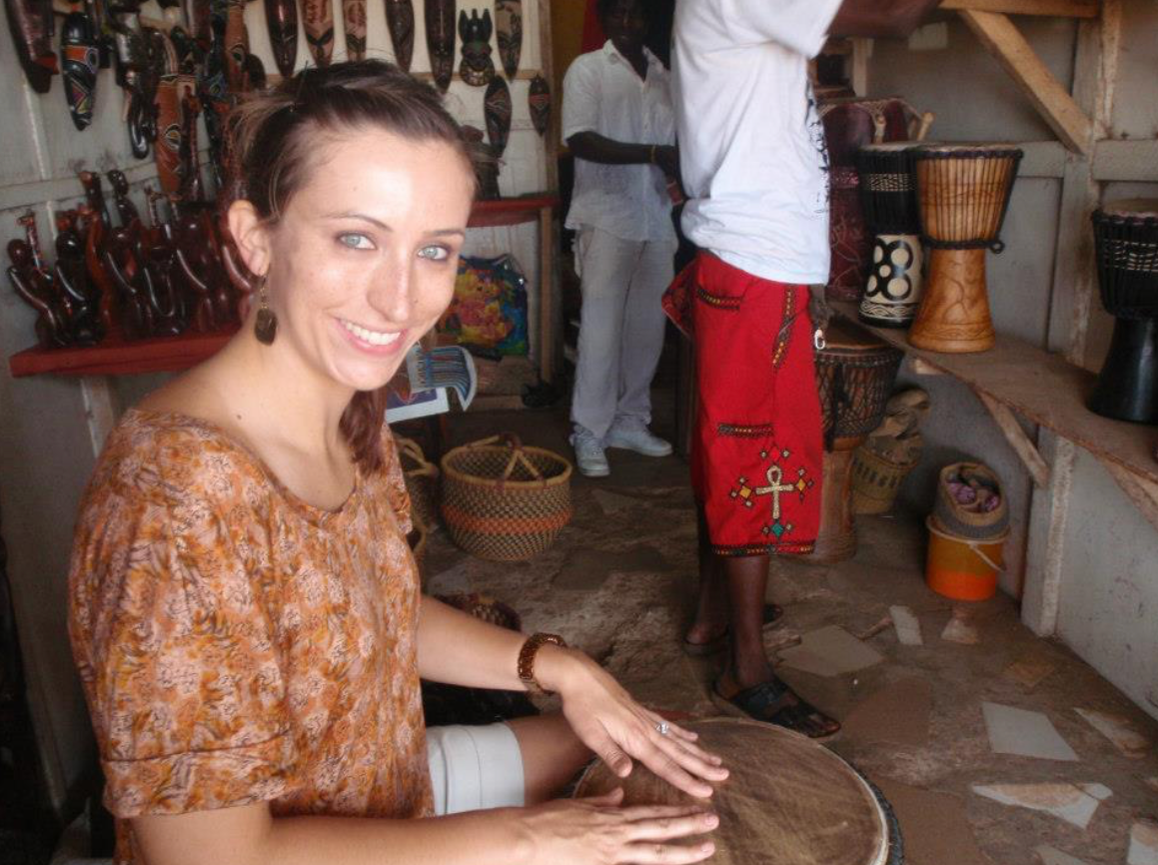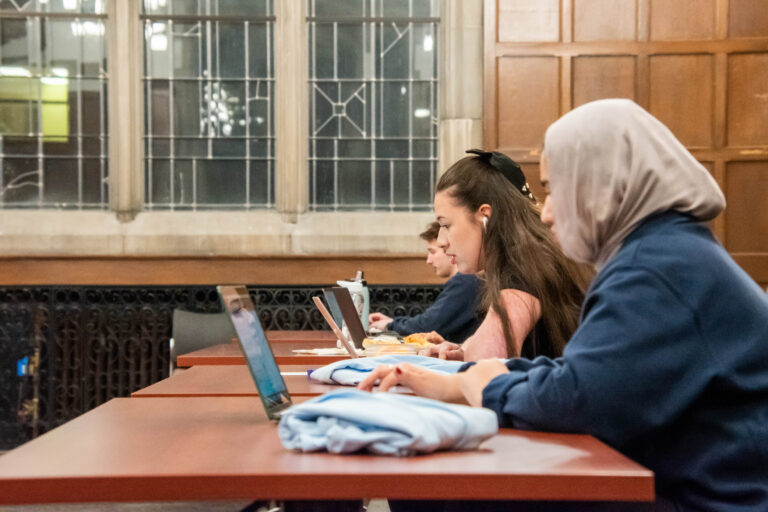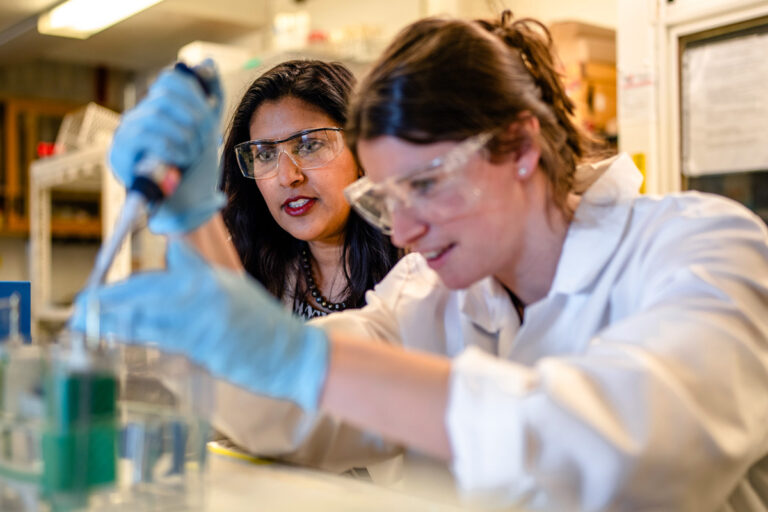By Andrew Goldstein, marketing communication specialist
It was only after an online application, a four-person panel interview that lasted half a day, a written exam, a year’s wait and another three months of orientation that Dr. Jessica Zemlak finally learned where she was going: Abuja, Nigeria.
The assistant professor of nursing had gone through the laborious process of applying for a job in the State Department’s Bureau of Medical Services, which provides health care to American embassy personnel and their families all over the world. She spent 18 months posted at the embassy in Nigeria from 2012 to 2013, practicing in the country’s only U.S. standard facility at the time.
Now close to completing her second year as a Marquette professor, Zemlak helps administer the Global Health Concepts study abroad course in South Africa and teaches the HEAL 2100 Primary Health Care Concepts course, which serves as an introduction to global health. She continues to be an advocate for cross-cultural learning.
This conversation has been edited for brevity and clarity.
What made you want to practice medicine abroad?
I always wanted to live and work abroad, and I wanted to do it using the skills I’d acquired as an advance practice nurse. I explored different avenues such as the Peace Corps, but the foreign service felt like the best fit for the way I wanted to practice.
Did you have any say in where you wanted to go or was it purely assignment-based?
At the time, you could give your preferences but during your first two tours of service, you didn’t really have the ability to choose. Abuja was an assignment.
What was a typical day like at work in the embassy?
I supervised five other staff members there. We had nurses, a lab technician and office staff. A typical day included meetings with various embassy teams I was on, overseeing protocol-driven nurse care and then providing direct patient care, including adults and children.
I was also on call 24/7. I was the only advanced practice provider at the post, so I was always on call even during off days. My job definitely extended outside traditional office hours.
How often would you get called after work to deal with something?
At least five out of seven days per week. Whether or not I needed to go into the office varied; sometimes we could talk through it over the phone or do in-home visits. If there was equipment that we needed for treatment that I didn’t have at home, we would go to the embassy.
What are some of the discrepancies between hospitals in the U.S. and what existed in Nigeria at the time?
While I was in Abuja, there was not a robust 911 or emergency response system to transport patients to the hospital. There were not ICU-level facilities that we’re used to here available at the time in Abuja. Blood transfusion services might not have existed in the same manner that they do in the U.S. There were also differences in things like access to imaging and specialty care.
In the United States, clinicians can often transfer patients to higher levels of care, such as specialists or hospital wards equipped to deal with specific ailments. In Nigeria these higher levels of care were not always available. I had to rely on my clinical skills and training, which made me a stronger and more confident clinician.
Talk a little bit about your co-workers. What kind of people were you serving with?
My favorite part of the experience was the people who worked with me in the medical clinic. They were all locally hired staff from Nigeria, except for one other nurse who was a U.S. citizen but from West Africa.
People like me come and go, but our locally hired staff brings the stability and infrastructure that sustains the embassy’s medical clinic. I was impressed with their knowledge, their passion, their flexibility and how much integrity they brought to the job. I would not have been successful without them. They’re an amazing team.
The College of Nursing offers study abroad opportunities that most nursing students at other institutions don’t have access to. You’ve seen some of our students both before and after they get back; what is that change like?
Having an immersive experience and applying some of the concepts you’ve been hearing and learning about is so helpful. Whether students go on to work in a global capacity or not, they can still apply that deeper understanding of how health is delivered around the world.
I worked with our cohort of nursing students that went to South Africa over the J-Term. Those students thought deeply about the impact of Apartheid and systemic racism on health care outcomes for people. They had discussions about what that meant for health and started to think about some of those social determinants in a U.S. health care context.
There’s a lot of opportunities for students having study abroad experiences to carry forward some of that learning and apply it.
In your opinion, what is the biggest benefit of practicing abroad?
People from health backgrounds often have siloed professional networks because we’re immersed with people who just do health-related things.
In this role, I was among people who had diverse, different backgrounds from me. That helped me grow both personally and professionally. It deepened my understanding of things that impact global health.



